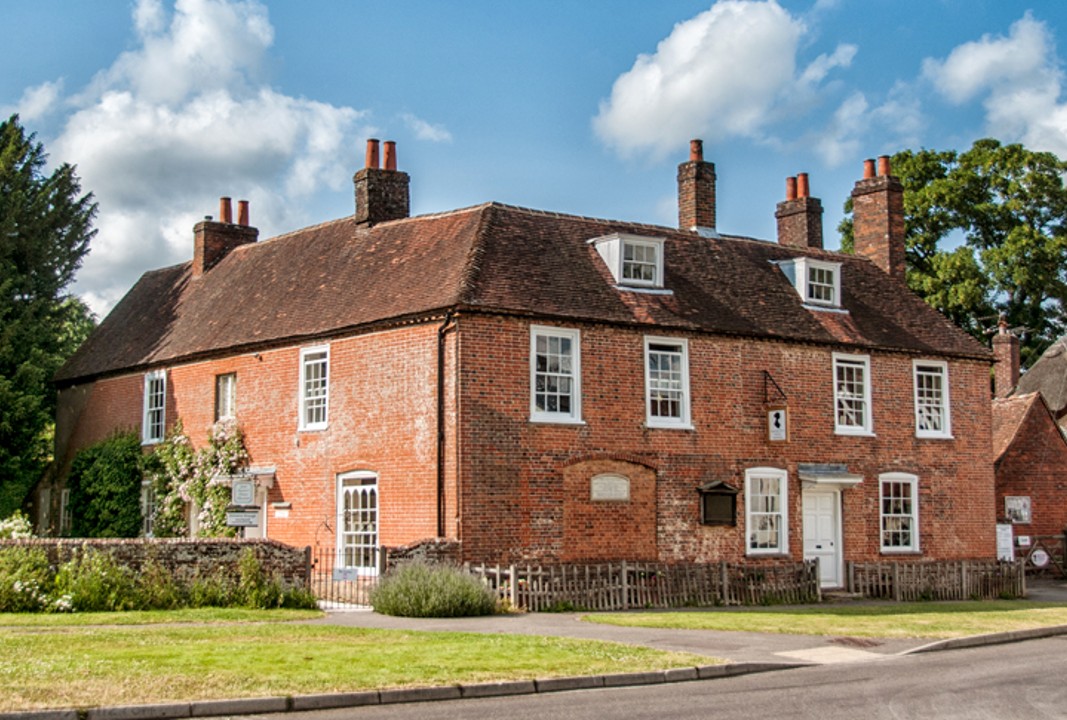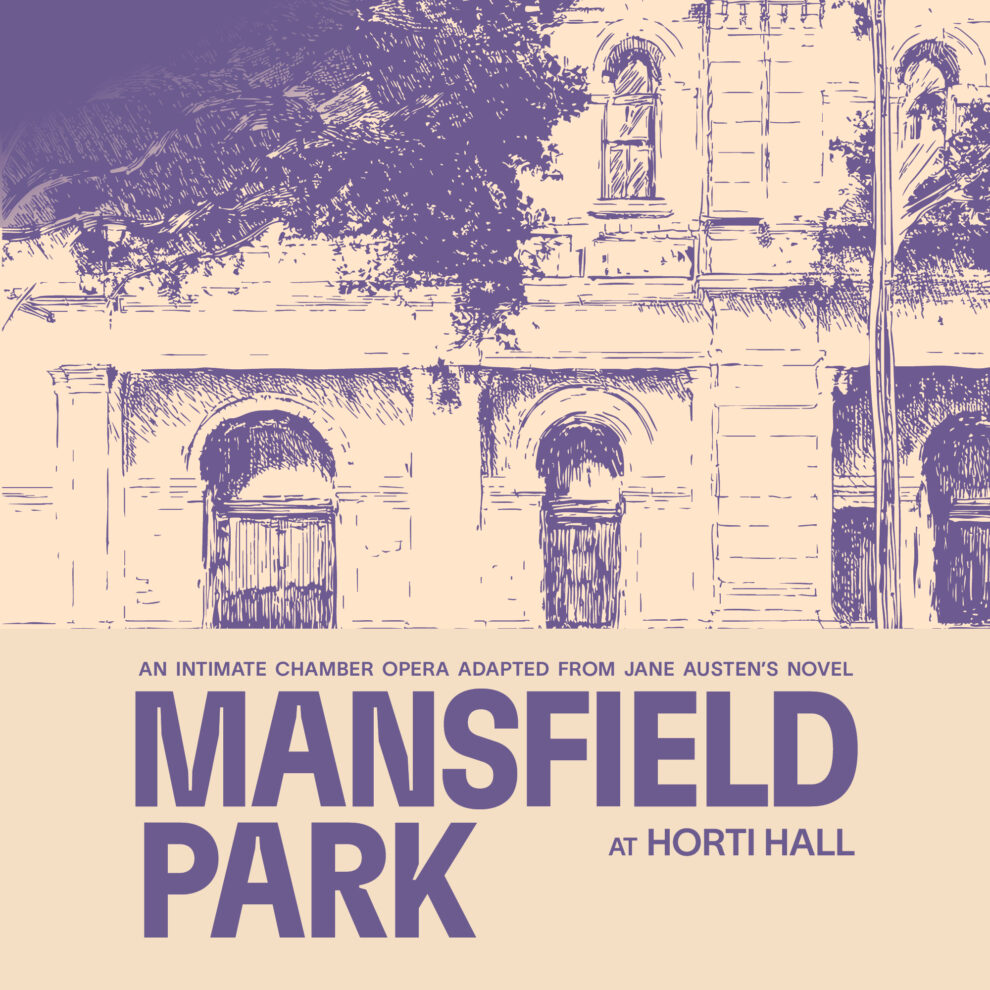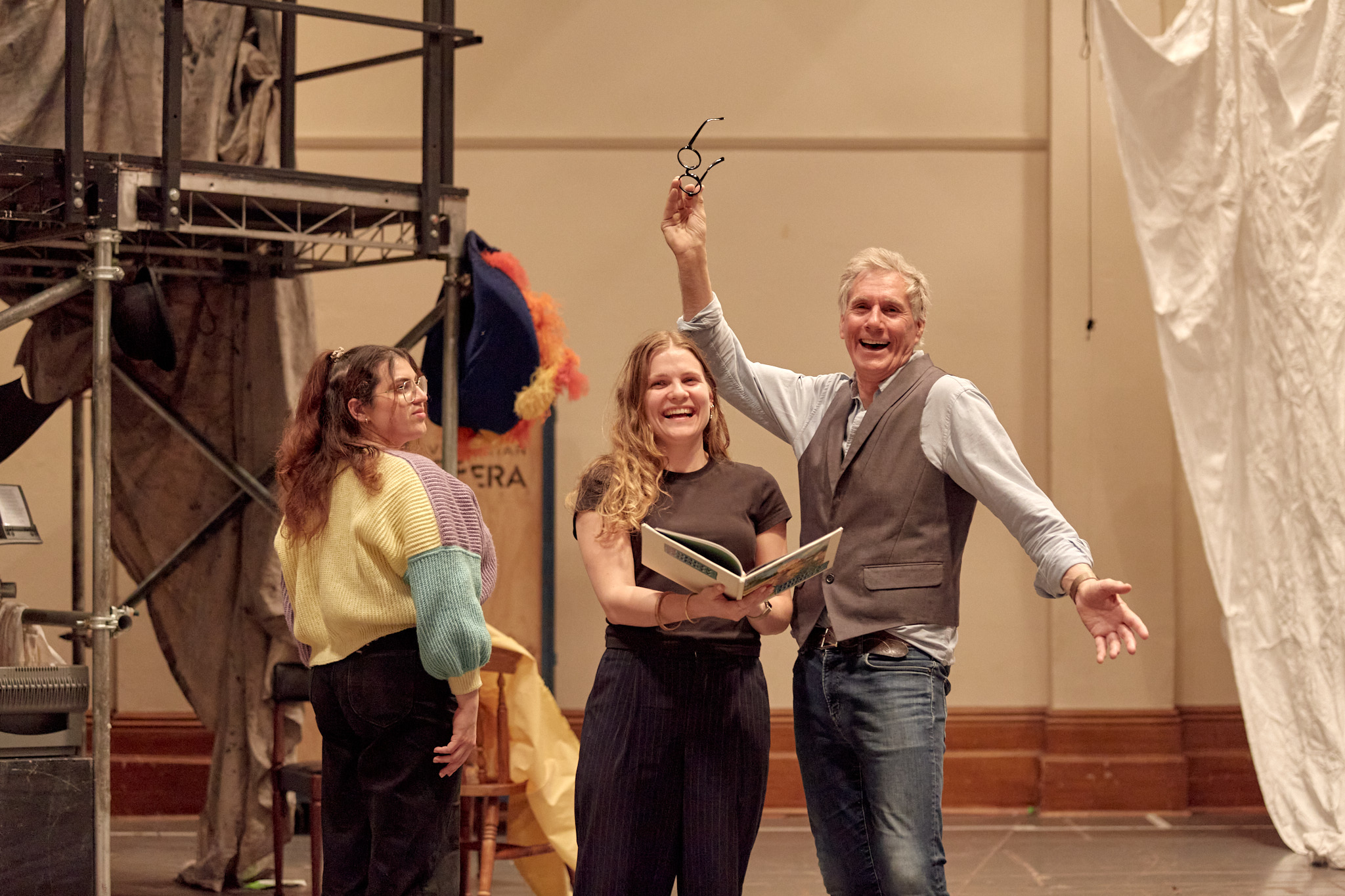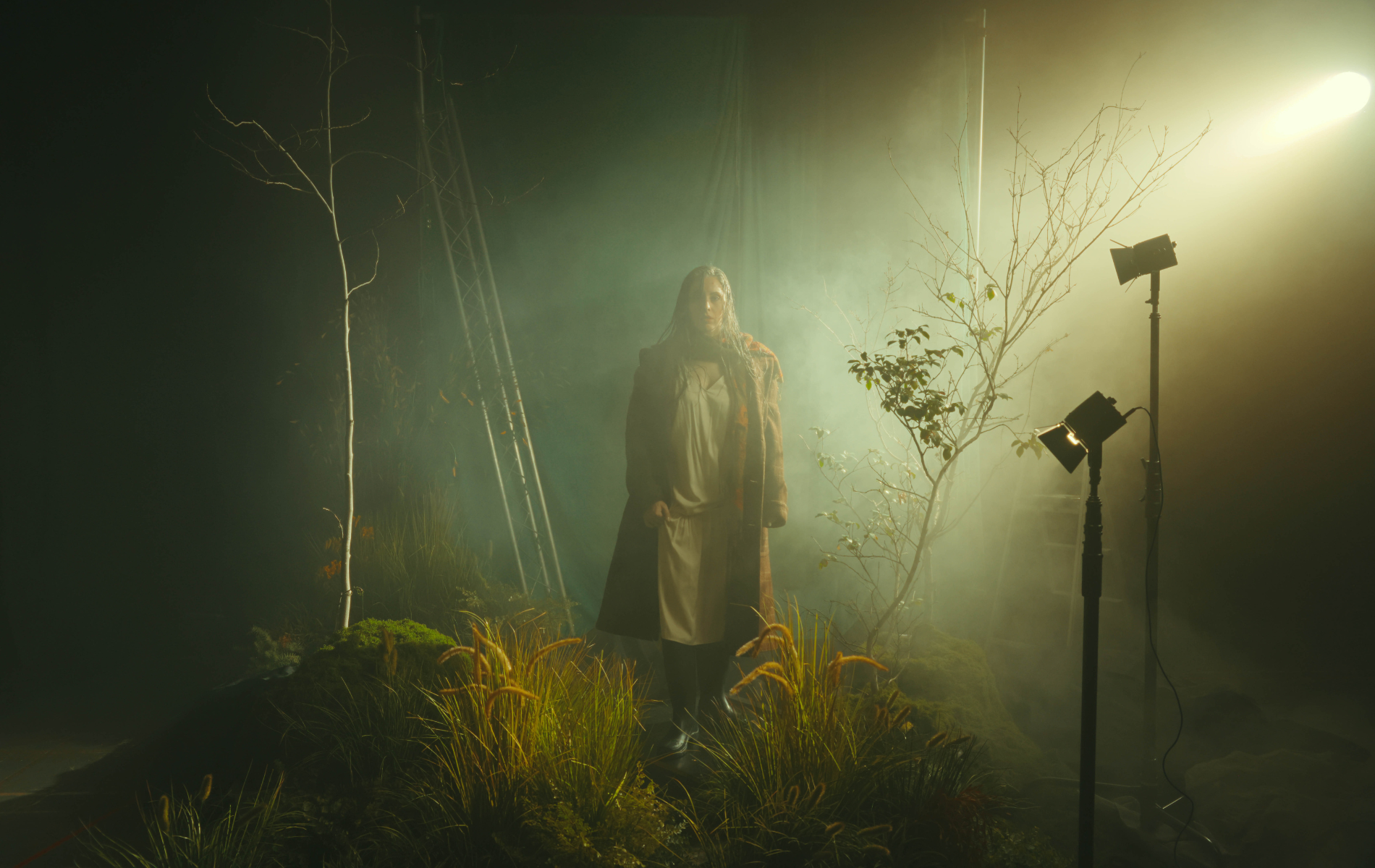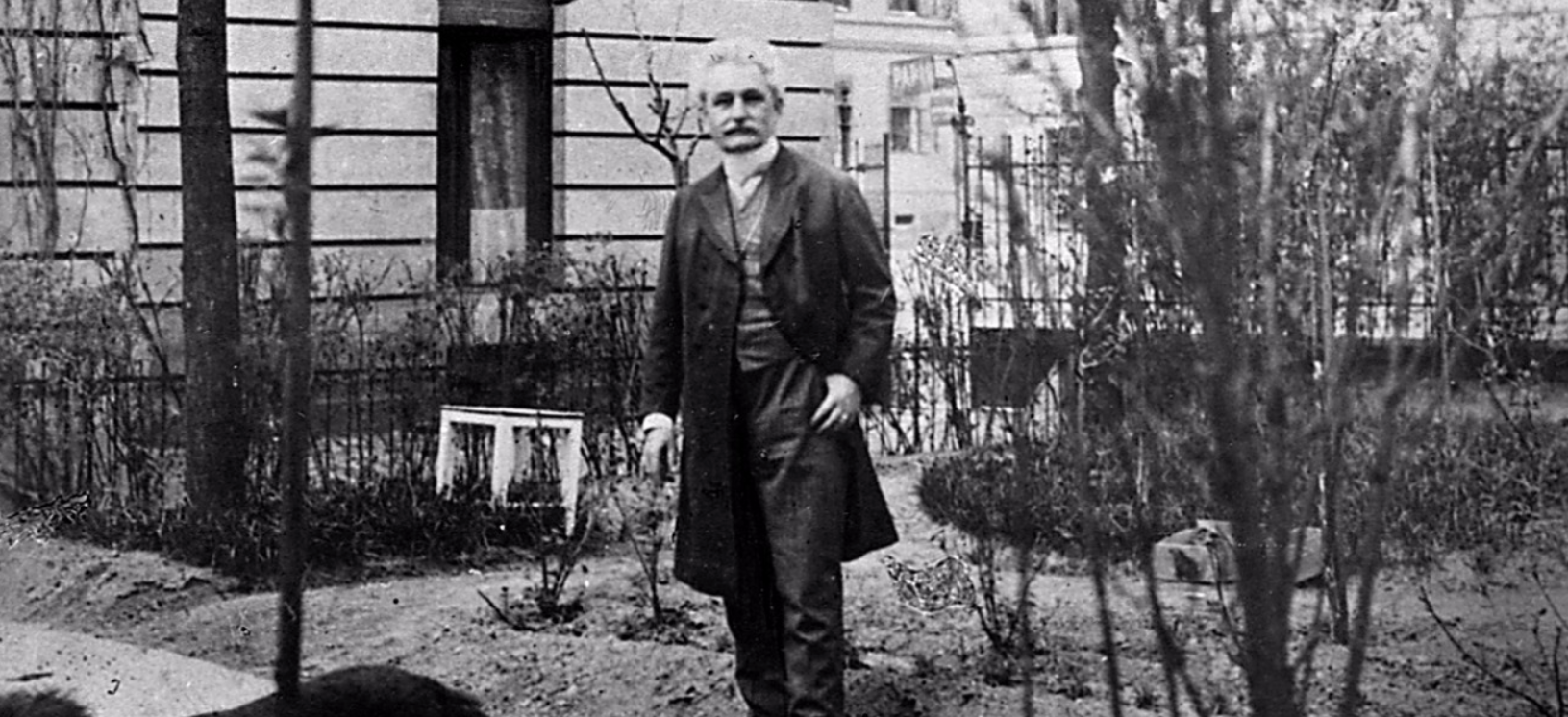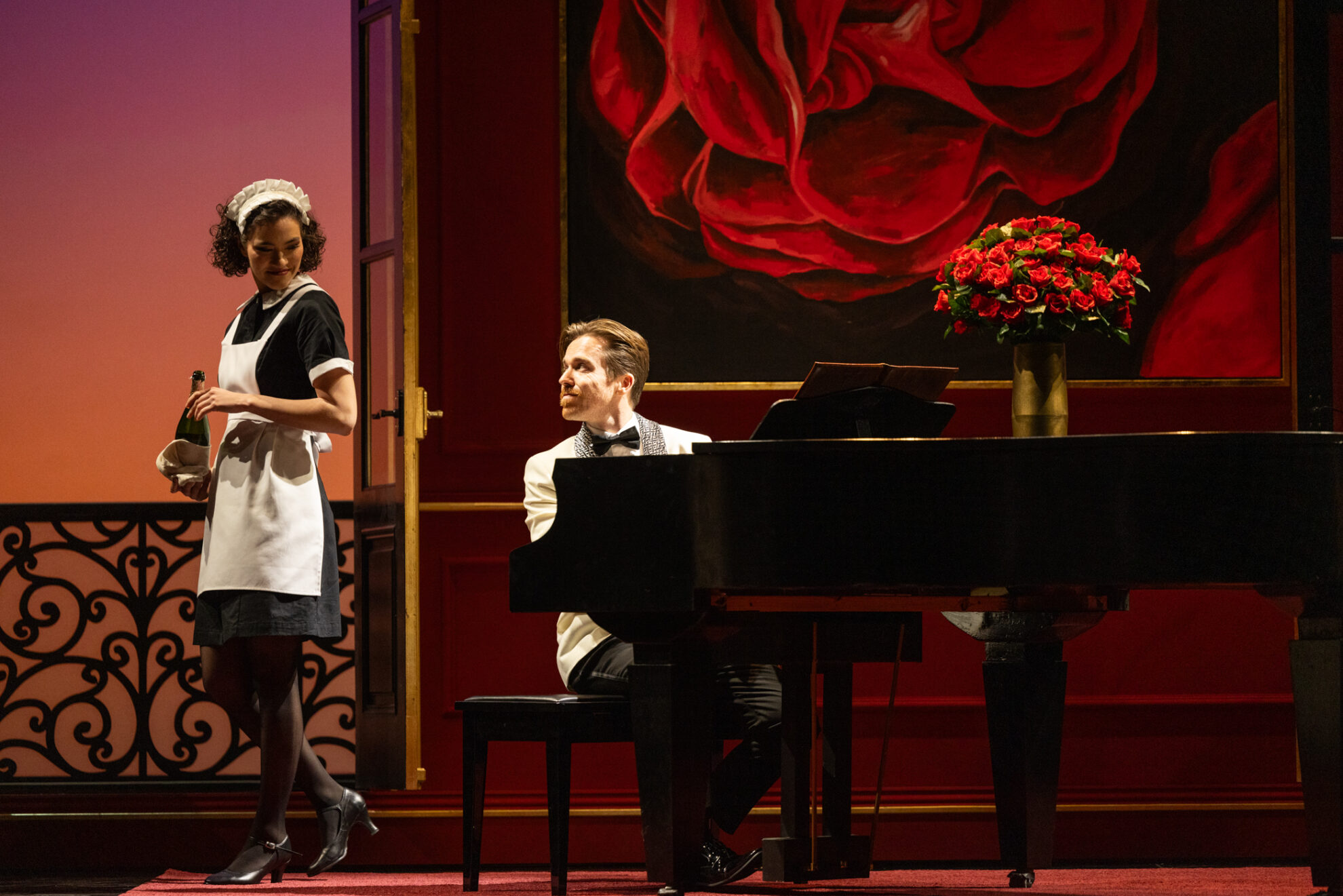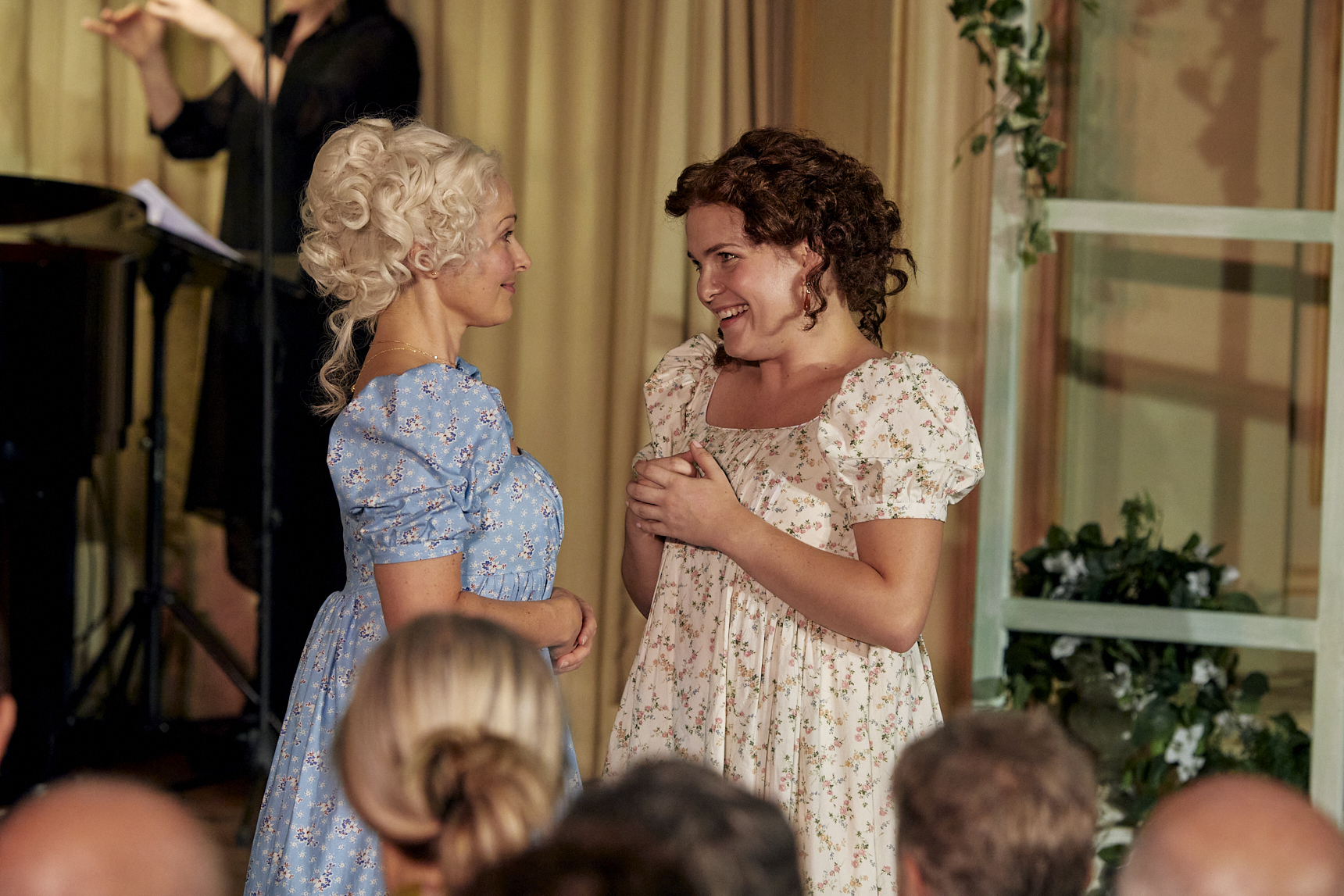
Aunt Jane: An Austen descendent on why her novels are still relevant
Ahead of our final performances of Jonathan Dove’s Mansfield Park, we speak to Jane Austen’s fifth great niece Caroline Jane Knight about her aunt’s immense, enduring legacy, and the literacy initiative she created in Jane’s name.
Among the lush fields and parklands of Southern England lies Chawton House – a 400-year-old estate with an incomparable literary heritage: here, Jane Austen wrote her novels. Caroline is the last of Jane’s nieces to grow up in Chawton House, surrounded by 16 generations of family history.
“Walking the same halls as Jane, sitting at the table where she dined, eating from the same Wedgwood dinner service, reading books from the same family library and gazing out at the same landscapes that inspired her created a connection that was simply woven into the fabric of my everyday life,” she explains.
In 2013, on the 200-year anniversary of Pride & Prejudice, Caroline launched the Jane Austen Literacy Foundation, a volunteer-run organisation that supports literacy rates in developing communities.
“I decided to invite the millions of Jane Austen enthusiasts worldwide to join me in supporting literacy projects in her honour,” Caroline says. “After all, Jane’s enduring legacy exists because she was literate in an era when many women weren’t, and because she had access to books.”
Caroline will be attending Victorian Opera’s sold-out Montsalvat performance of Mansfield Park. Here, she reflects on the popularity of Jane Austen adaptations and why Mansfield Park remains just as relevant as it did in 1814.
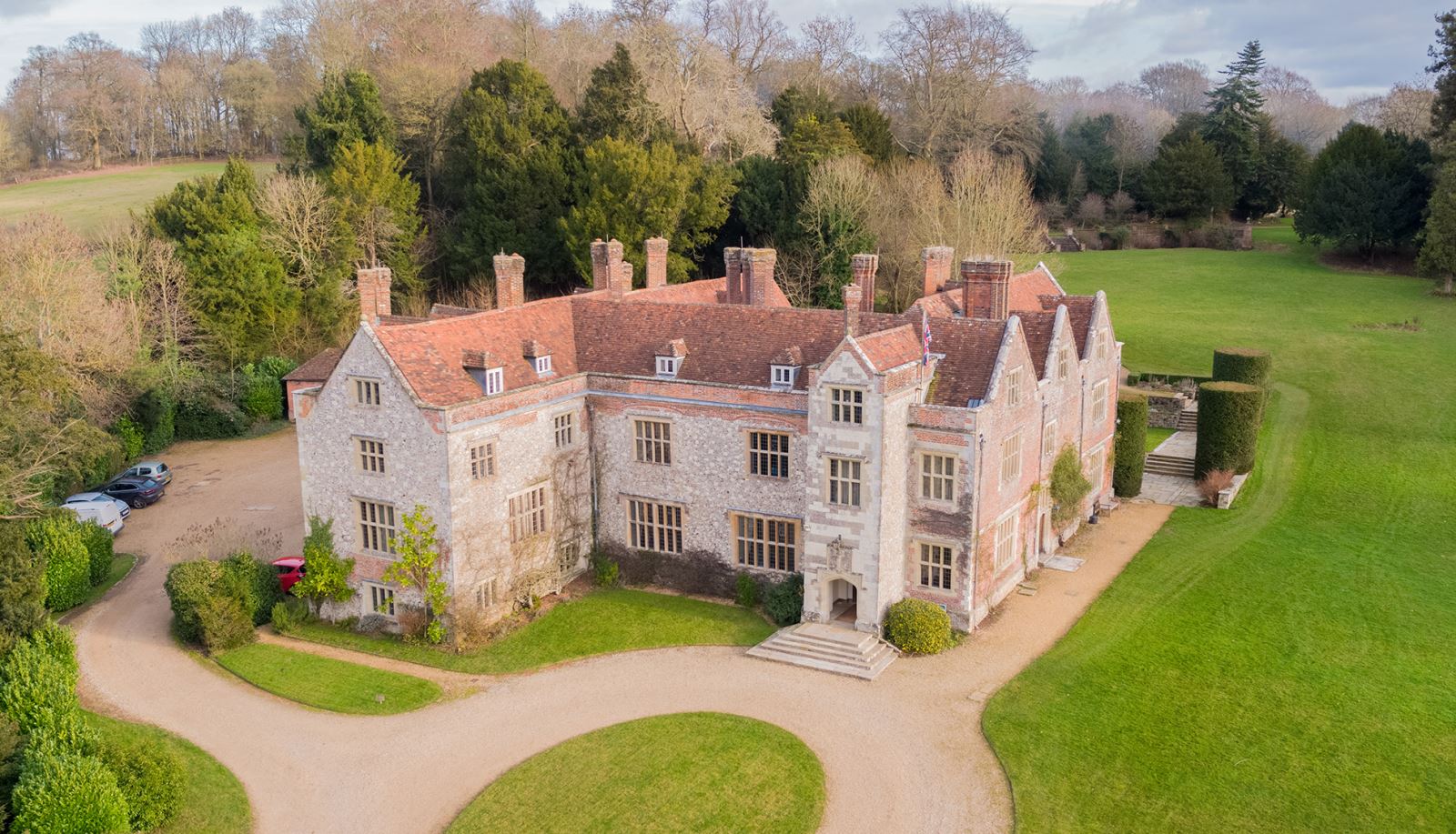
Can you tell me a bit about what it was like growing up in the Austen Knight family home – when did you become aware of its significance?
I have always known of the significance of Chawton and my family. Chawton House was once owned by my fourth great grandfather, Edward Austen Knight, who housed his mother and sisters in Chawton Cottage, a short walk away. Jane was 33 years old when she arrived in Chawton and an unpublished author, despite earlier attempts. It was in Chawton that Jane wrote, revised and published her most beloved works. Tragically, Jane died eight years later.
The Chawton estate continued to be handed down through the generations and my grandfather, Edward Knight III, was the owner when I was born, and I spent the first 18 years of my life there.
The estate has attracted visitors for 70 years, ever since Jane Austen’s House, as Chawton Cottage is now known, opened to the public. Granny ran a tearoom in the Great Hall at Chawton House, so we had visitors in our home all summer long.
Working in Granny’s weekend tearoom during my teenage years, I’d chat with Austen enthusiasts. I loved watching their eyes light up when they realised they were speaking with someone who not only shared Jane’s DNA but lived where her literary genius flourished.
What's your relationship like with Jane Austen's books? Do you have a favourite?
From as young as I can remember, I knew Darcy and Lizzie as her most beloved creations, and felt a special connection to Emma and Mr Knightley, as Knightley is named after my family.
My favourite changes with time and life experience. Currently, I find myself drawn to Emma and Persuasion, Jane’s final completed novels. They possess a maturity and depth that resonates more deeply with me as I’ve grown older. There’s something particularly moving about Persuasion’s themes of second chances and quiet fortitude that speaks to me at this stage of my life.
Jane’s novels reveal new layers with each reading, especially as I move through different stages of life. A passage that seemed straightforward in my youth has nuance and deeper meaning decades later. Her observations about human nature and social dynamics unfold gradually over time, rewarding readers who return to her works again and again. I am no different, finding fresh insights, hidden jokes, and subtle commentary that I missed in previous readings.
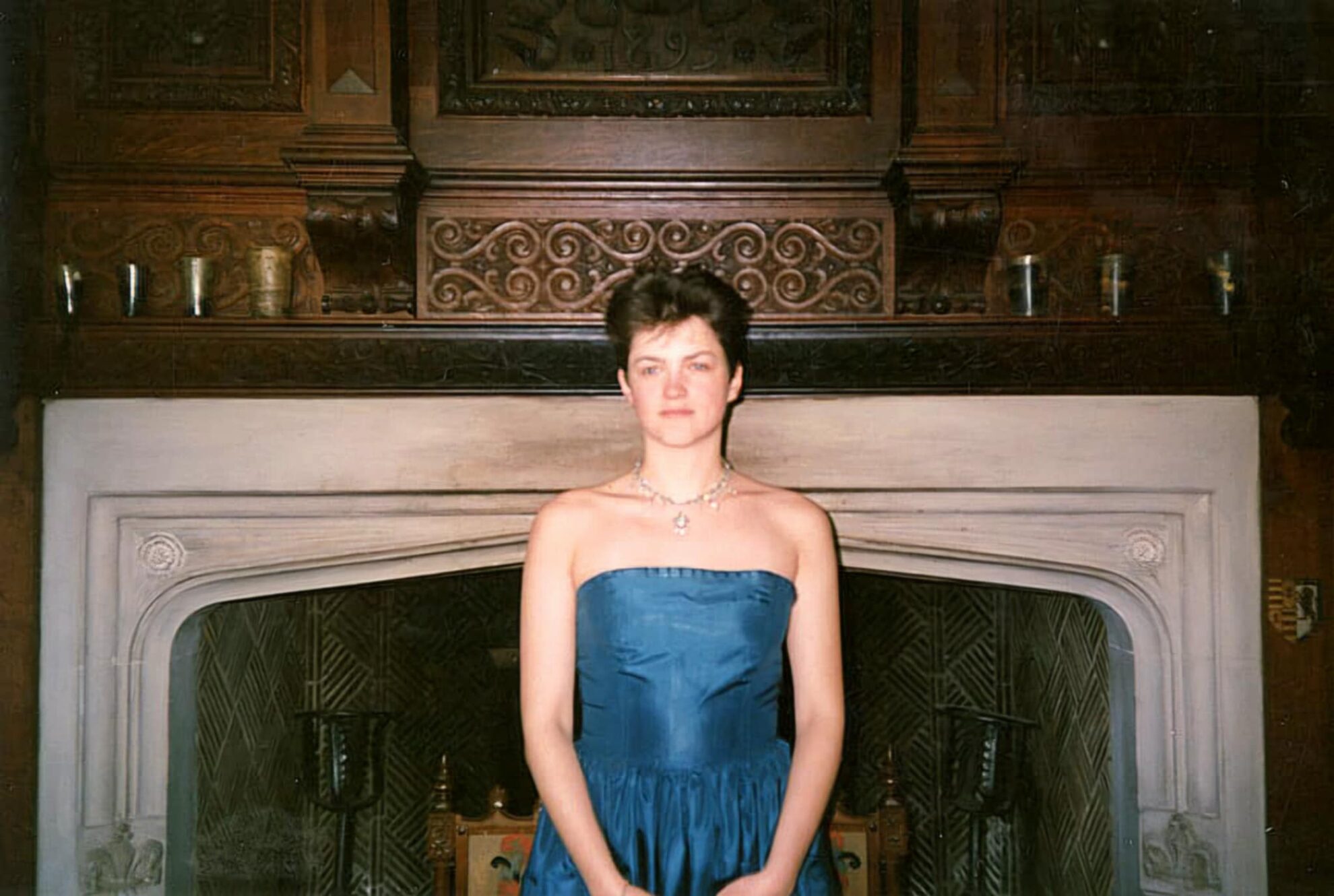
From Jonathan Dove's Mansfield Park to the film Clueless, there are seemingly endless adaptations to Jane Austen's novels. Why do you think her work inspires so many creative interpretations?
Jane’s work transcends time because she wrote about the essence of human experience; love, family dynamics, social constraints, personal growth, and the universal search for happiness and meaning. These themes resonate regardless of era or setting, making her stories perfect for creative reimagining.
What makes her work particularly adaptable is the psychological depth of her characters. Jane created such complex, believable people that they can be in any setting. Whether Fanny Price is in Regency England or being reinterpreted through music, her growth, finding her voice and moral courage speaks to audiences across centuries.
Jane’s wit and social commentary provide exceptionally rich material for adaptation. Her sharp observations about class, wealth, and social norms are just as relevant today, allowing modern creators to draw compelling parallels to contemporary society. The constraints of Regency England may look different today, but we still navigate social expectations, power dynamics, and the tension between authenticity and belonging.
What makes Mansfield Park relevant to contemporary audiences?
Mansfield Park offers perhaps the most complex social commentary of all Jane’s novels. At its heart, it explores moral integrity in a world driven by social pressure, materialism and appearances, a theme highly relevant in our social media age.
Fanny Price’s position as an outsider gives her a unique perspective on the privilege and moral compromises of those around her. Contemporary audiences can readily connect with this outsider viewpoint and the quiet courage it takes to stand by one’s principles when faced with overwhelming pressure to compromise. Her strength represents a different kind of heroine; one whose power comes not from wit or beauty but from unwavering moral conviction and emotional intelligence.
The novel also examines wealth inequality and exploitation in ways that speak directly to contemporary discussions about ethical consumption and global interconnectedness. The Bertram family’s wealth derived from Sir Thomas’s plantation in Antigua introduces questions about the human cost of privilege that are relevant today in our ongoing conversations about social justice and wealth distribution.
These themes make Mansfield Park not just relevant but perhaps even more accessible to contemporary audiences increasingly conscious of social justice issues and the courage required to maintain personal integrity in a world of shifting values.
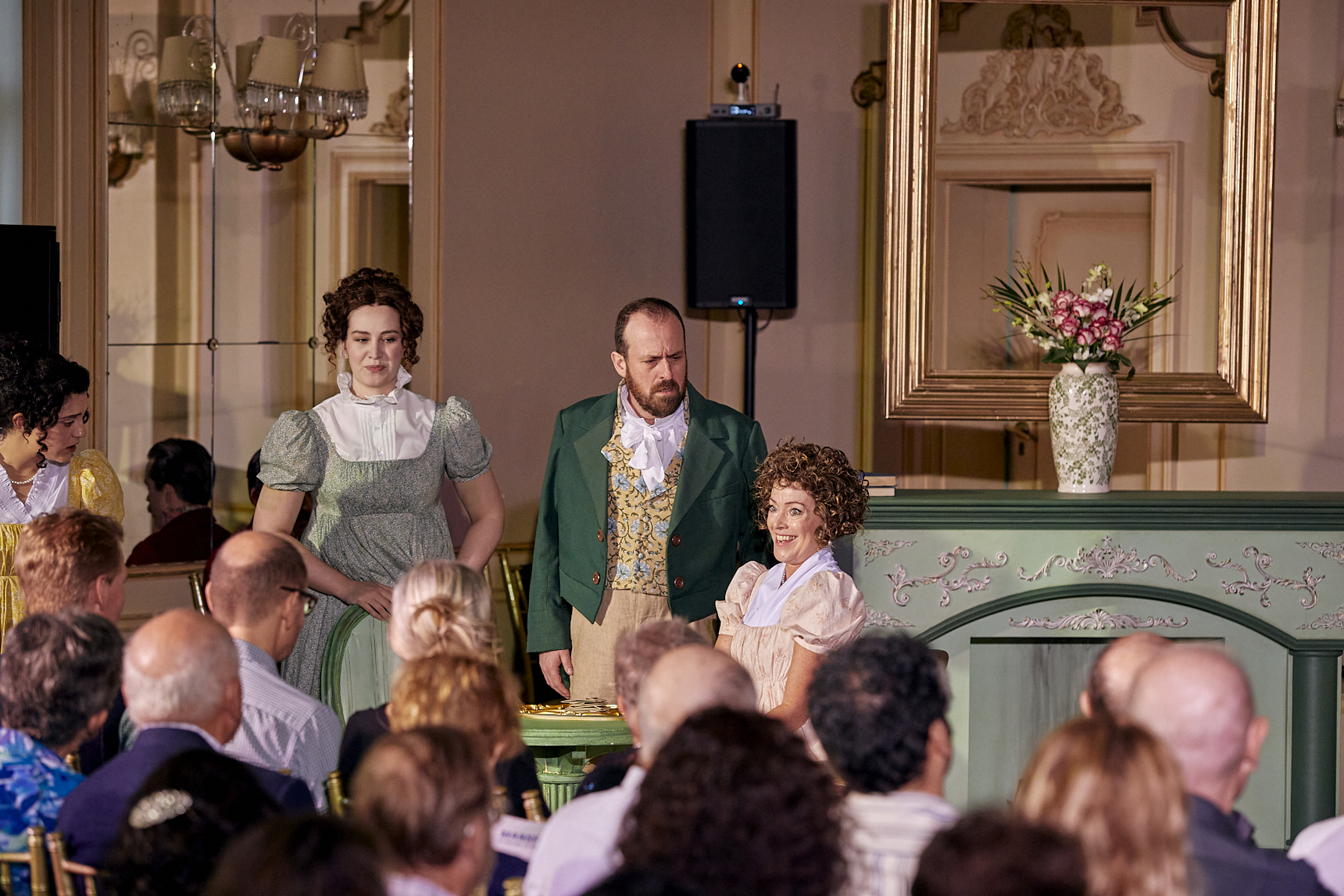
Is there a particular Mansfield Park moment you're curious to see in the operatic adaptation?
I’m particularly fascinated to see how Jonathan Dove translates the pivotal theatrical episode, where the young people rehearse Lovers’ Vows in Sir Thomas’s absence, into operatic form. This section contains such rich layers of performance within performance, hidden desires and shifting power dynamics that it seems perfectly suited to opera’s emotional expressiveness.
I’m equally intrigued by how Fanny’s rich inner life will be portrayed musically. So much of her character development happens in her thoughts and observations. Opera’s ability to express inner emotional states through music offers a wonderful opportunity to bring Fanny to life in new ways.
I’m also looking forward to experiencing how the relationship between Fanny and Edmund evolves throughout the opera. Their connection is built on shared values and understanding rather than dramatic romantic gestures, which presents an interesting challenge and opportunity for an art form often associated with grand passions. How will the composer capture this quieter, deeper form of attachment through music? I look forward to finding out.
How does your great aunt continue to inspire you?
Jane was the best possible role model for a girl to grow up with. When I was five, my mother told me about Jane as an extraordinary woman who was intelligent, independent, witty and determined to follow her own path.
What made Jane truly pioneering was her unwavering commitment to her unique creative voice. Rather than following literary trends of her time, she carved her own path with clear-eyed social observations and authentic characters that resonated deeply with readers.
Jane had remarkable perseverance. Despite the significant obstacles of financial uncertainty, limited opportunities for women, rejection from publishers, and periods of creative silence, she never abandoned her passion for writing or her creative vision.
I also learned how brilliantly she balanced creative independence with family connections. Jane was no isolated genius; she was thoroughly involved in family life, finding ways to carve out space for her writing while maintaining the relationships that mattered to her. This delicate balance of independence and connection is something I strive for in my own life, and my family support my work today as enthusiastically as Jane’s family supported hers.
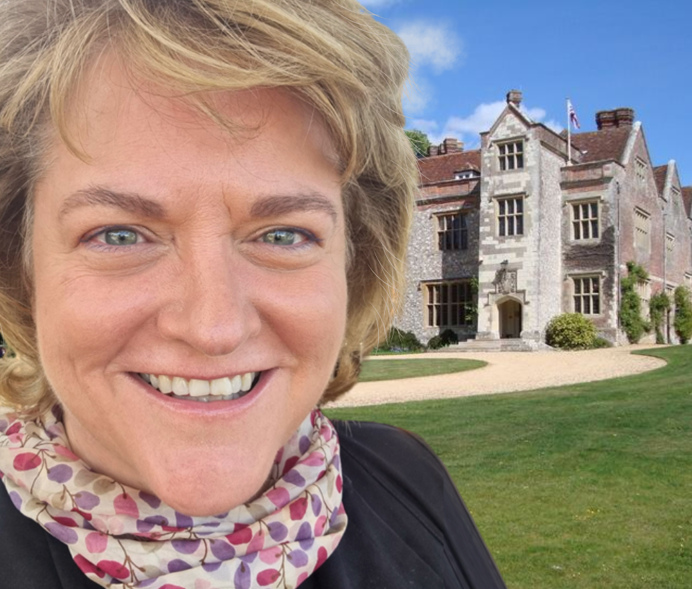
What inspired you to establish The Jane Austen Literacy Foundation? What is your proudest achievement?
My family left Chawton House in 1988, four centuries after John Knight built the house. I was heartbroken and found I couldn’t bear to talk about Jane Austen or my childhood home. For 25 years, I didn’t tell anyone where I grew up or mention my connection to Jane. But during those 25 silent years, Jane had transformed from beloved classic author to global cultural icon, touching lives in every corner of the world.
I recognised that I occupied a unique position. As the last of Jane’s nieces to have grown up at Chawton House in the heart of her literary world, and having built a successful career in business, I had authentic family connections, a compelling story and the skills to create something meaningful. I also decided to share my story in my memoir Jane & Me: My Austen Heritage.
What makes me most proud is that The Jane Austen Literacy Foundation has united a global community of over 600 volunteers and thousands participating in our events, around a shared purpose.
The Jane Austen community was already vibrant and active, but now many of those gatherings also support literacy programs that change lives. The moments that touch me most deeply are when I see the tangible impact of our work, whether supporting Indigenous children in Australia, providing resources to children in the most disadvantaged areas of Delhi or one of the many other projects we support around the world.
Through the Foundation, Jane’s words continue to transform lives, not just through her stories but through the community she’s inspired who are now extending the precious gift of literacy to others who need it most.
Anthea Batsakis, Content Editor
